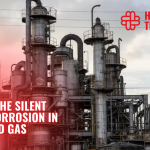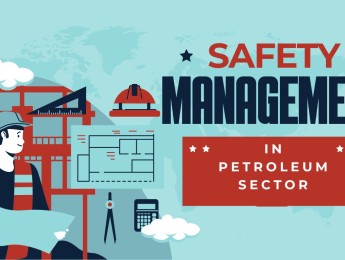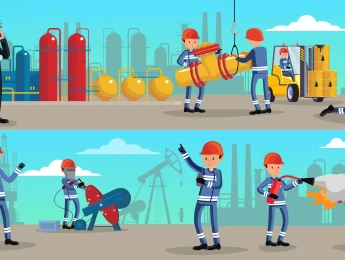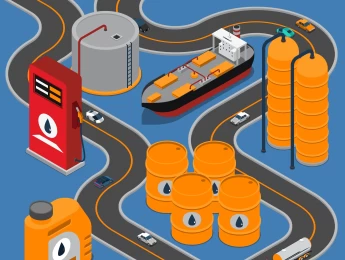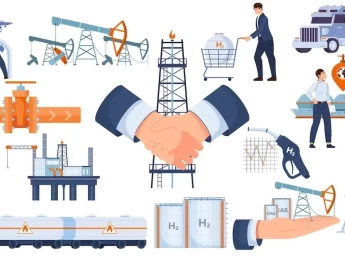Corrosion control focuses on strategies to control and prevent corrosion in the mechanics of operations. Pipelines are a particular area of concern for oil and gas infrastructures. Unmanaged corrosion can have significant economic impacts, incurring billions and trillions in costs at a global level. Typically, corrosion is associated with metallic alloys and can impact their chemical and physical properties and mechanical behaviours.
This course provides an overview of managing and mitigating corrosion in the oil and gas sector. You will review the basics of corrosion engineering, examine corrosion damage and types, and explore different strategies to prevent and control corrosion. Corrosion can never be entirely prevented; however, with a comprehensive corrosion management strategy, you can reduce damage-related costs and unexpected failures.
Upon completion of this course, participants will be able to:
- Outline the fundamentals of corrosion engineering.
- Identify the key corrosion issues in upstream oil and gas operations.
- Determine the corrosion types that impact crucial infrastructure points in your operations.
- Describe corrosion monitoring and inspection systems.
- Develop a corrosion management plan that includes monitoring, inspection, reporting, and mitigation strategies.
This course is intended for:
- Petroleum, Welding, and Process Engineers
- Design Engineers
- Maintenance Engineers and Planners
- Inspection and Maintenance professionals
This course uses a variety of adult learning styles to aid full understanding and comprehension. Participants will review case studies to highlight key areas of importance and possible areas for faults. They will be supplied with the best tools required for learning exercises to improve their skills. Participants will analyse the examples to thoroughly understand how these skills, techniques and methods apply in the workplace.
Day 5 of each course is reserved for a Q&A session, which may occur off-site. For 10-day courses, this also applies to day 10
Section 1: Introduction To Corrosion Engineering
- Review the key aspects of metallurgy, including the metallurgy of oil field equipment.
- Identify the properties of common oil field production fluids.
- Outline the API 5L specifications, ASME codes, and standards for pipelines and related infrastructure.
- Examine the components of corrosion theory.
- Describe methods of corrosion measurement and calculating corrosion rates.
- Calculate the rate of corrosion for different materials.
- Discuss the economic consequences of corrosion.
Section 2: Overview Of Corrosion Damage
- Describe the fundamentals of corrosion.
- Identify common types of corrosion.
- Outline the 5 types of materials testing: mechanical, thermal, electrical, resistance, and non-destructive.
- Explore materials testing for corrosion resistance.
- Outline the process and main components of corrosion monitoring.
- Examine how to conduct a corrosion failure analysis.
Section 3: Types Of Corrosion
- Describe the key types of corrosion:
- CO2 corrosion
- H2S corrosion
- Crevice corrosion
- Erosion corrosion
- Microbiologically induced corrosion (MIC)
- Corrosion Under Insulation (CUI)
- Corrosion Under Support (CUS)
- Chloride stress corrosion
- Review additional corrosion types impacting oil and gas production: galvanic, stray current, pitting, intergranular, soil, water, and atmospheric corrosion.
Section 4: Corrosion Prevention And Control
- Identify points of corrosion control: operations, processes, design, and material selection.
- Examine cathodic protection systems (CPS).
- Review the passive protections provided by coatings and linings.
- Describe the performance of chemical corrosion inhibitors.
- Discuss biocide treatment options.
- Explore the use of non-metallic materials.
Section 5: Corrosion Monitoring Strategies
- Describe the different monitoring systems: intelligent pigging, corrosion coupons, ultrasonic measurements, electrical probes, and radiographic examination.
- Outline the process of Risk Based Inspection (RBI).
- List Key Performance Indicators (KPIs) for corrosion.
- Discuss asset integrity management with a focus on corrosion.
- Examine the ISO 12944 standard for corrosion prevention.
- Review strategies for managing corrosion inspection data.
- Identify key strategies to manage equipment corrosion at your organisation.
- Develop a comprehensive corrosion management strategy.
Upon successful completion of this training course, delegates will be awarded a Holistique Training Certificate of Completion. For those who attend and complete the online training course, a Holistique Training e-Certificate will be provided.
Holistique Training Certificates are accredited by the British Assessment Council (BAC) and The CPD Certification Service (CPD), and are certified under ISO 9001, ISO 21001, and ISO 29993 standards.
CPD credits for this course are granted by our Certificates and will be reflected on the Holistique Training Certificate of Completion. In accordance with the standards of The CPD Certification Service, one CPD credit is awarded per hour of course attendance. A maximum of 50 CPD credits can be claimed for any single course we currently offer.
- Course Code IND01-117
- Course Format Classroom, Online,
- Duration 5 days


